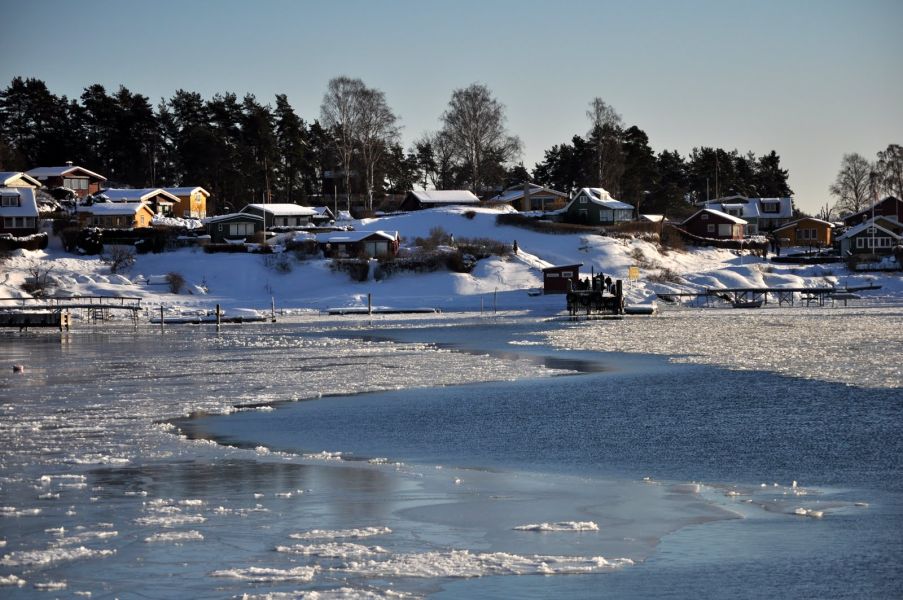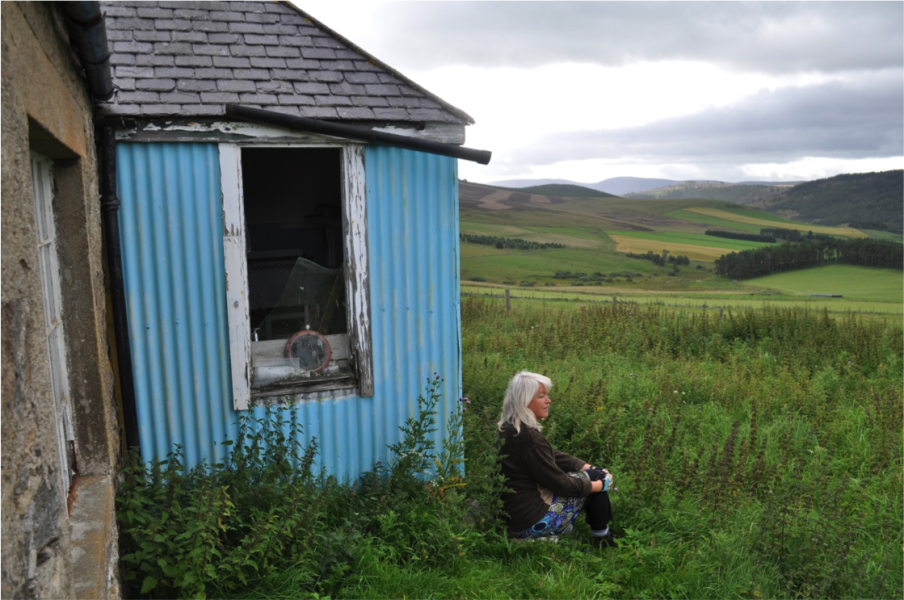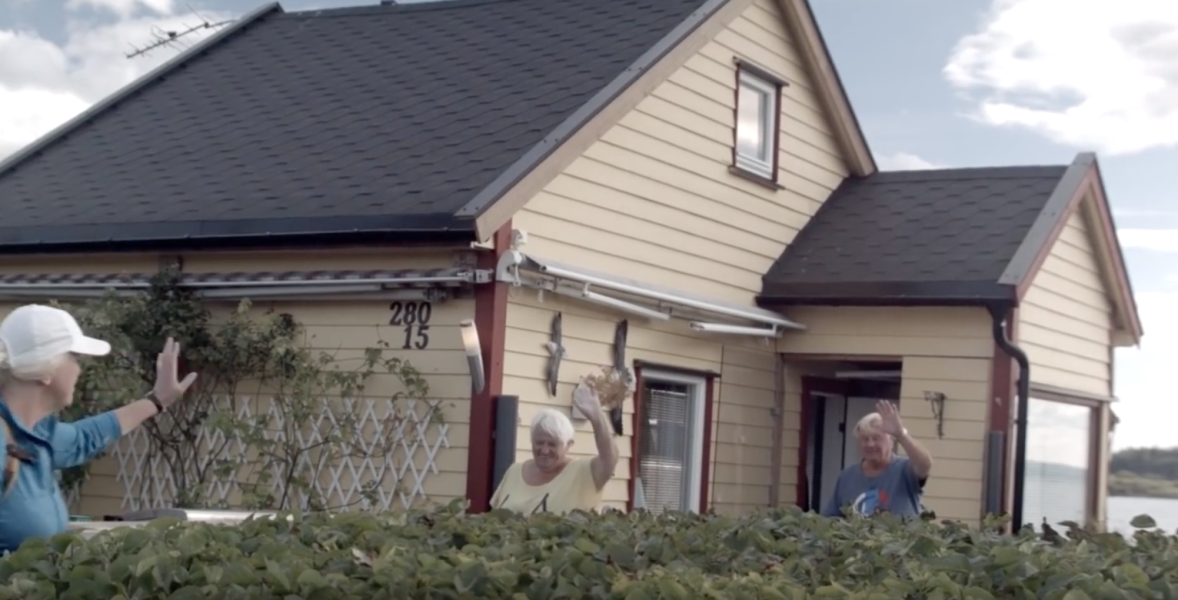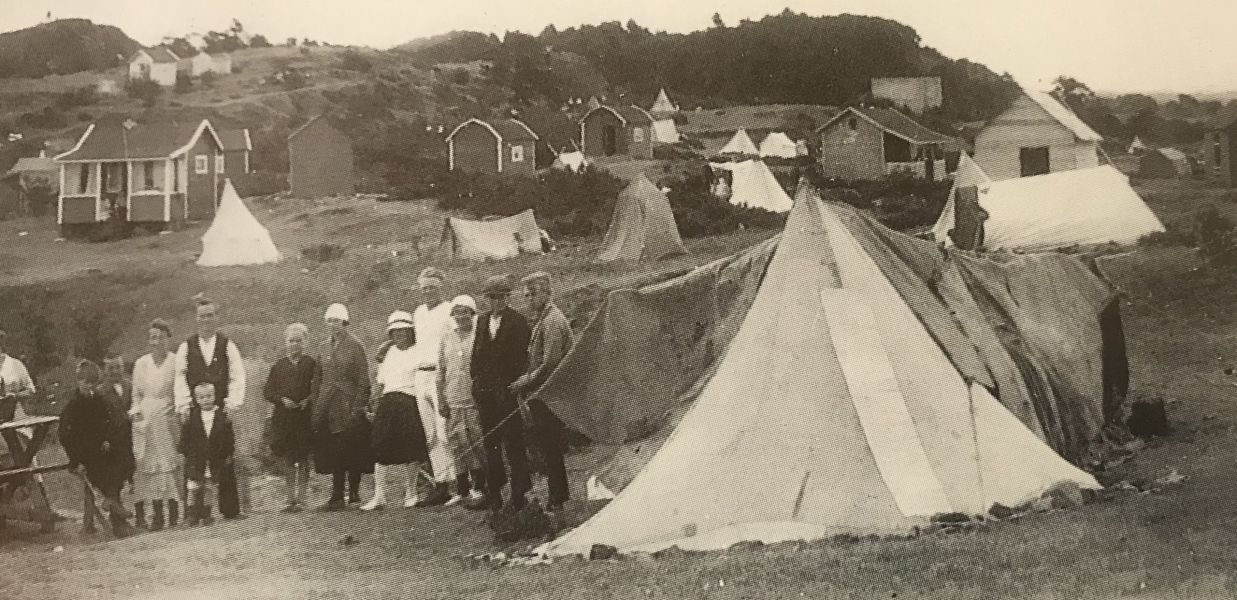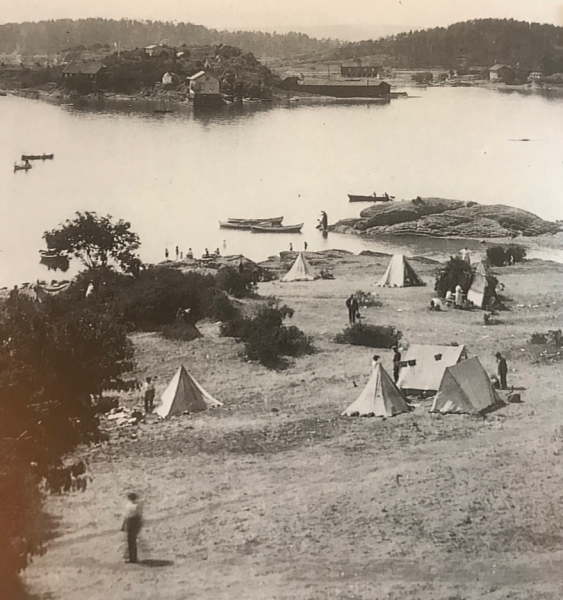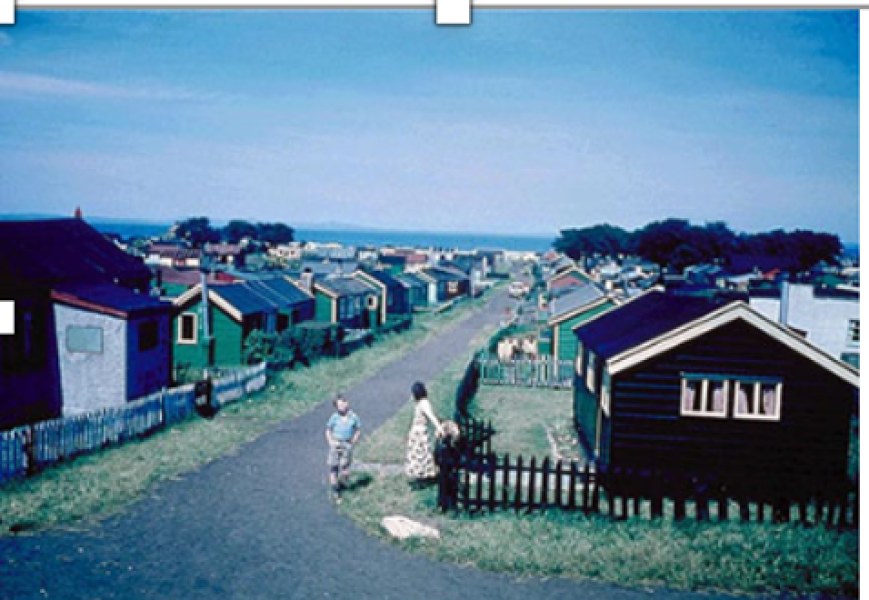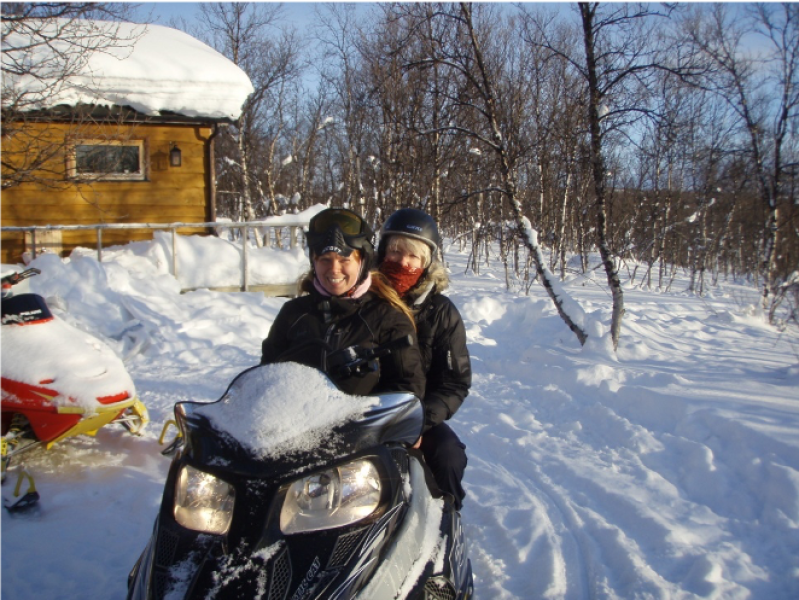Huts
About the book
Huts.
No, I don’t mean sheds.
And I don’t mean a borrowed week in someone else’s self-catering cottage.
Or ownership of a substantial second home that should really belong to a local family.
I mean wee wooden huts. Usually self-built, electricity-free and (deep  breath) minus a flushing loo. Usually located discreetly in woodlands, belonging to the same family for generations and their much-loved, hugely valued, first, main, forever home - the home they don’t change over a lifetime despite changing their city home many times to suit family expansion and changing jobs.
breath) minus a flushing loo. Usually located discreetly in woodlands, belonging to the same family for generations and their much-loved, hugely valued, first, main, forever home - the home they don’t change over a lifetime despite changing their city home many times to suit family expansion and changing jobs.
The permanent home - the home of the heart - the place possessed by nearly every family in Scandinavia, Canada, North America, New Zealand and beyond. The big bonus of living at a wooded latitude. The place folk really meet, relax and reconnect with nature, families and themselves. The natural, outdoorsy, adventure-focused location for leisure instead of the pub, competitive sportsgrounds and commercial shopping malls. The place that’s there for you 24/7 without the need for deposits, booking conditions, sky-high weekly rentals, epic forward planning and stress. The place to collect berries, spot squirrels, stack and chop wood, go swimming and immerse yourself in the passing seasons. The place to do your own repairs and make your own mistakes. The chance to immerse yourself in different and soon familiar surroundings that offer real release from the working week and constraints of city life.
Huts, a place beyond your normal life.
It’s an escape valve our Nordic neighbours wouldn’t be without - but it’s a pipe dream here in Scotland. Why?
I’ve spent much of my adult life (and the last ten years completing a PhD) in a bid to find out. This book - Huts, a place beyond - is the result.
It tells the story of my own hutting experiences in Aberdeenshire  during the 1980s, my hytte-exploring years in Norway and the remarkable outdoor-crazy Scots who defied rejection and restriction during the inter-war years to build hutting communities that survived for generations - only to face eviction and gentrification today. Characters like the thrawn, hut-loving socialist William Ferris, who founded Carbeth and the first youth hostel in Britain near Loch Lomond, only to be completely forgotten today. Above all, the book shows how centuries of feudal landownership stifled hut development and improvement to leave Scotland the only hut-free country at a wooded latitude today.
during the 1980s, my hytte-exploring years in Norway and the remarkable outdoor-crazy Scots who defied rejection and restriction during the inter-war years to build hutting communities that survived for generations - only to face eviction and gentrification today. Characters like the thrawn, hut-loving socialist William Ferris, who founded Carbeth and the first youth hostel in Britain near Loch Lomond, only to be completely forgotten today. Above all, the book shows how centuries of feudal landownership stifled hut development and improvement to leave Scotland the only hut-free country at a wooded latitude today.
What are we missing?
Huts, a place beyond - tries to give a flavour of the leisure lives most Scots will never know.
Without change.
Reviews
Chris Ballance
'Huts, a place beyond' puts access to the countryside for recreation by ordinary folk centre-stage. And it's a great page turner. I haven't waited so eagerly for a book for ages and it surpassed expectations.'

